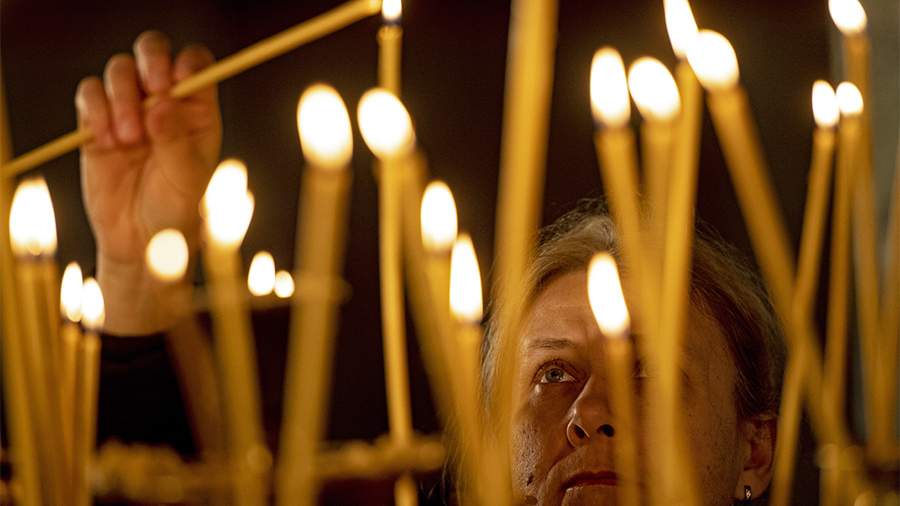December 25 - Catholic Christmas: traditions of the holiday, in which countries are celebrated
- Новости
- Local news
- December 25 - Catholic Christmas: traditions of the holiday, in which countries are celebrated

Catholics around the world and Christians of other denominations celebrate Christmas on December 25. It is in honor of this holiday that millions of believers in more than 100 countries decorate their homes, decorate Christmas trees, prepare gifts for loved ones and gather with their families for a festive dinner. In 2024, the celebrations will take place on Wednesday night. Izvestia tells us about the traditions of Christmas in different countries and why the Russian Orthodox Church celebrates it on a different date.
When Catholic Christmas is celebrated in 2024
The decision to celebrate Christmas on December 25 was taken at the Third Ecumenical (Ephesus) Council in 431. The date does not depend on the lunar calendar, so the holiday is celebrated at the same time every year - a week before the New Year.
It is celebrated not only by Catholics, but also by Protestants, Anglicans, as well as Orthodox churches in Bulgaria, Greece, Romania, Syria, Lebanon and Egypt.
In the Russian Orthodox Church, the celebration falls on January 7. This is due to the fact that the Catholic Church celebrates Christmas according to the Gregorian calendar, which was established in Europe in the late 16th century. The Russian Orthodox Church (ROC) still adheres to the Julian chronology.
However, despite the difference in dates, both Catholics and Orthodox Christians celebrate the birth of Jesus Christ. And in Western Christians the holiday takes a more important place in the calendar than New Year's Day and is celebrated more widely.
History and traditions of Christmas in Catholics
According to the scriptures, the Savior was born in Bethlehem. The exact date of his birth is not mentioned in the Bible, but our era starts counting from this event.
Nine months before the birth of Christ the archangel Gabriel appeared to the Virgin Mary and informed her the good news that she will give birth to the divinely chosen child. Shortly before his appearance, the Virgin Mary and her husband Joseph arrived in Bethlehem on the orders of the king of Judea to take a census. The couple had to spend the night in a cave, for they had nowhere to stay in the city. It was there that Christ was born.
Shortly before that a bright star - the Bethlehem star - lit up in the sky, announcing the birth of the Savior. The Magi came to its light and brought their gifts to the Son of God. The tradition of giving gifts at Christmas originates from here.
Every year on the occasion of the celebration in Europe are held various Christmas events, which last until January 1. In cities there are fairs, performances, charity events. And on the streets they set up creches with manger and figures of the Mother of God and the Christ child.
Traditionally, the holiday is preceded by the period of Advent, which comes four Sundays before Christmas. It is a time of fasting, prayer and preparation for repentance. It is followed by Christmas Eve, the strictest day of fasting, which ends with the rising of the first star. On this day believers come to church to have time to confess, decorate Christmas trees and prepare a festive dinner.
Baked goose with apples or turkey is served as the main dish on Christmas Day. Also on the table are Christmas pudding or gingerbread. It is not customary to be stingy with treats and gifts. Presents to loved ones are usually given not on New Year's Day, but on December 25. They are put under the Christmas tree or in special colored stockings.
And some countries have their own traditions associated with Christmas. For example, in Norway it is customary to hide brooms to ward off evil spirits that can spoil the holiday. In Mexico, locals break plates. So they say goodbye to the passing year and attract happiness in the new year. And in Italy it is considered a great luck to meet a policeman in red socks on Christmas Day.
What you can and can not do on Catholic Christmas on December 25th
With Catholic Christmas is associated with a number of strict prohibitions that are adhered to by believers. In particular, you should not wear dark clothes, do household chores, argue with loved ones and punish children. A special prohibition applies to divination and other occult activities.
Charity, donations to the needy and any good deeds are welcome. Before the Christmas evening itself, it is necessary to ask forgiveness from loved ones, reconcile with those with whom there was a quarrel. In addition, you can not hold a grudge against other people and use bad words, especially at the festive table.
Earlier "Izvestia" told how Western Christians celebrate the Christmas of the Virgin Mary.
Переведено сервисом «Яндекс Переводчик»
